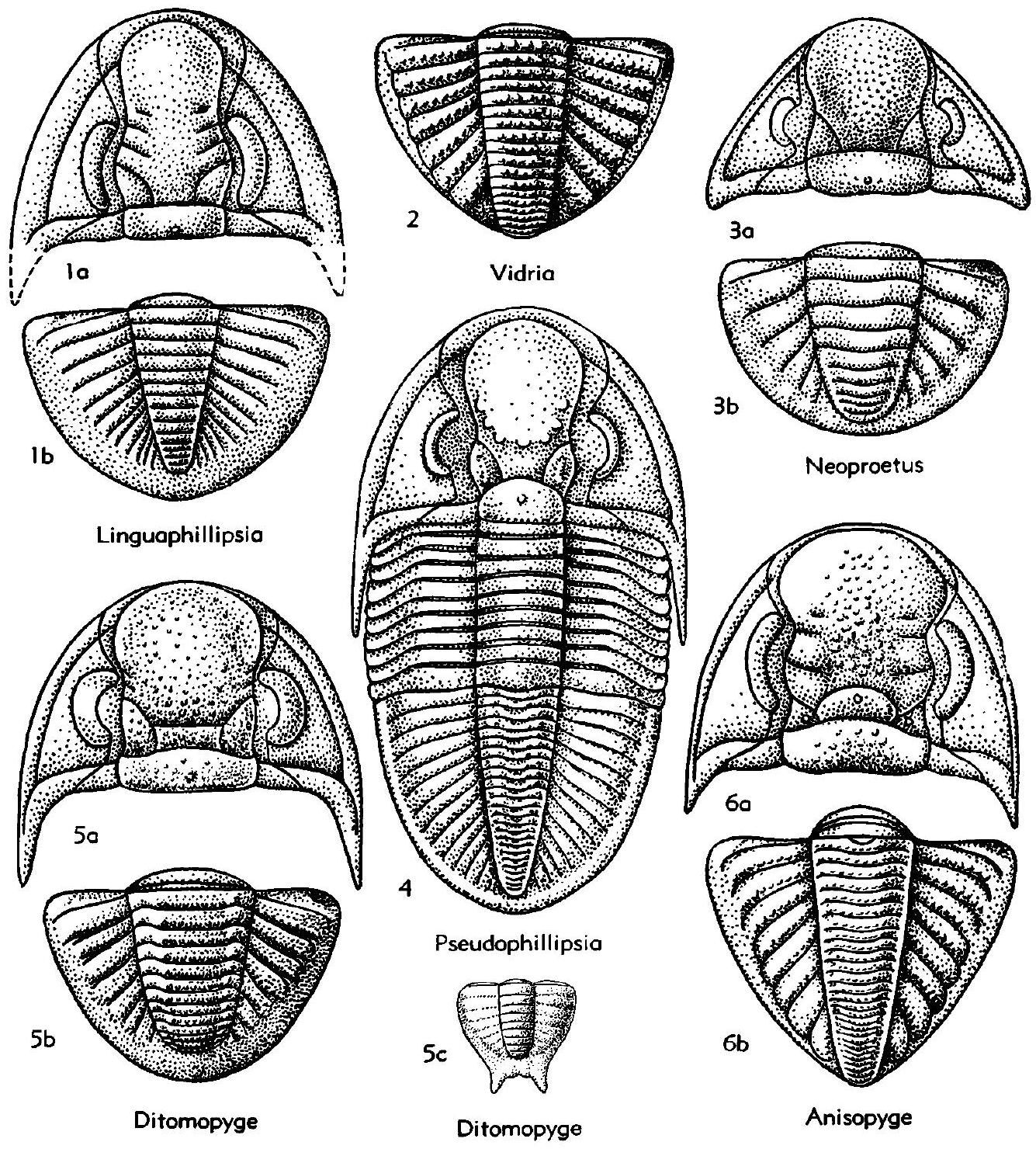Welcome to the Treatise on Invertebrate Paleontology!
Please enter a genera name to retrieve more information.

Ditomopyge
Classification
Phylum:
Arthropoda
Subphylum:
Trilobitomorpha
Class:
Trilobita
Order:
Ptychopariida
Suborder:
Illaenina
Superfamily:
Proetacea
Family:
Phillipsiidae
Formal Genus Name and Reference:
Ditomopyge NEWELL, 1931
Type Species:
D. lansingensis
Images
(Click to enlarge in a new window)
Fig. 307, 5a, b. D. scitula (Meek & Worthen), Penn., Ill., 5a, b, ceph., pyg., × 4 (491), Fig. 307, 5c. *D. lansingensis, U.Penn., Kans., juvenile pyg., × 22 (436)
Synonyms
Cyphinium, Neophillipsia
Geographic Distribution
cosmop.
Age Range
Beginning Stage in Treatise Usage:
Penn.
Beginning International Stage:
Bashkirian
Fraction Up In Beginning Stage:
0
Beginning Date:
323.4
Ending Stage in Treatise Usage:
L.Perm.
Ending International Stage:
Kungurian
Fraction Up In Ending Stage:
100
Ending Date:
274.37
Description
Like Kaskia but glabella broad, with median and lateral preoccipital lobes, Pygidium with broad axis flattened on top and strongly geniculate pleural fields, young stages with posterior pair of spines
References
Museum or Author Information
Classification
Phylum:
Arthropoda
Subphylum:
Trilobitomorpha
Class:
Trilobita
Order:
Ptychopariida
Suborder:
Illaenina
Superfamily:
Proetacea
Family:
Phillipsiidae
Formal Genus Name and Reference:
Ditomopyge NEWELL, 1931
Type Species:
D. lansingensis
Images
(Click to enlarge in a new window)
Fig. 307, 5a, b. D. scitula (Meek & Worthen), Penn., Ill., 5a, b, ceph., pyg., × 4 (491), Fig. 307, 5c. *D. lansingensis, U.Penn., Kans., juvenile pyg., × 22 (436)
Synonyms
Cyphinium, Neophillipsia
Geographic Distribution
cosmop.
Age Range
Beginning Stage in Treatise Usage:
Penn.
Beginning International Stage:
Bashkirian
Fraction Up In Beginning Stage:
0
Beginning Date:
323.4
Ending Stage in Treatise Usage:
L.Perm.
Ending International Stage:
Kungurian
Fraction Up In Ending Stage:
100
Ending Date:
274.37
Description
Like Kaskia but glabella broad, with median and lateral preoccipital lobes, Pygidium with broad axis flattened on top and strongly geniculate pleural fields, young stages with posterior pair of spines
